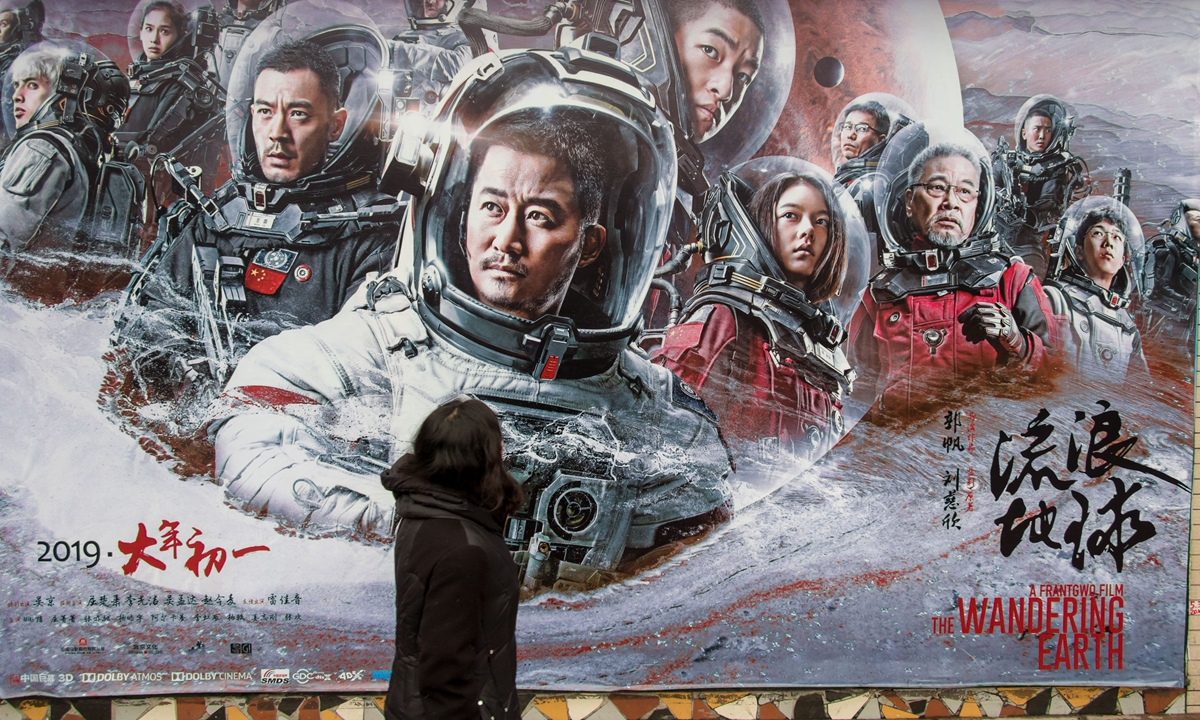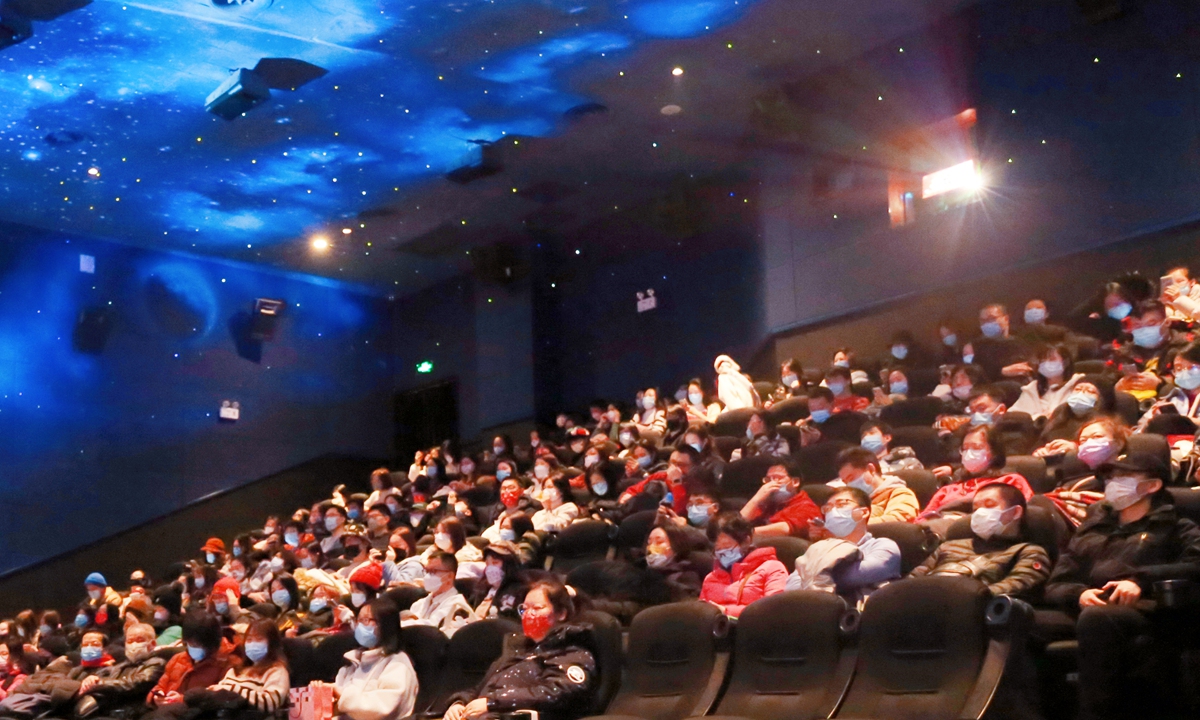ARTS / FILM
Why Chinese audiences don’t love Hollywood blockbusters any more?
A new change

Promotional material for The Wandering Earth Photo: VCG

Photo: VCG
March is coming to an end, but the three highly anticipated foreign language films The Batman, Moonfall and Uncharted have failed to inject new life into the current stagnant Chinese mainland box office.As of Wednesday, the total box office of the three films has not been able to surpass the 300 million yuan ($47 million) mark, with The Batman, Moonfall and Uncharted grossing 117 million yuan, 74.68 million yuan and 90.31 million yuan respectively, according to China's ticketing platform Maoyan.
The current surge in COVID-19 cases nationally has probably been a large barrier preventing them from maximizing their box office as Maoyan shows that as of Tuesday only 46.8 percent of mainland theaters are open.
Pessimistic outlook
China's Qingming Festival holiday is set to kick off in the beginning of April. In recent years, more small and medium-budget domestic films have chosen to debut during this time because, unlike the Spring Festival, they do not have to worry about competing against big blockbusters.
For example, Sister took home 860 million yuan when it was released during the Qingming Festival period in 2021, driving the overall box office of this period to a record high.
However, due to the current COVID-19 outbreak in China, four domestic films that were set to debut during the Qingming Festival have delayed their release dates. This has allowed two foreign language films Escape Room: Tournament of Champions and Hotel Transylvania 4: Transformania to take the lead in the schedule, although they may find the Chinese film market a tough nut to crack, according to a report from Maoyan on Wednesday.
The report noted that more domestic films are likely to be released in April only after the outbreak is brought under control.
Looking at the overall schedule, only one to two foreign language movies are set to be released each week throughout April in the mainland film market, including the highly anticipated The Secrets of Dumbledore, US action thriller film Ambulance and Indian blockbuster Drishyam.
Inevitable trend
Chinese film observers, however, say that the COVID-19 pandemic has only been a "catalyst" and that it is inevitable for Chinese audiences to eventually lose interest in Hollywood movies.
According to industry insiders, there are many reasons behind this trend.
First of all, Hollywood has been producing fewer original stories in recent years as the industrialization of Hollywood has caused it to focus more on movie franchises, comic book adaptations and visual effects blockbusters, Shi Wenxue, a film critic based in Beijing, told the Global Times on Wednesday.
"Whether it is The Batman or Spider-Man, Hollywood only captivates audiences through nostalgia without any creative expression about the current international situation and the impact of the pandemic on human beings," he added.
Shi is not the only one to think this way.
The hashtag "Why does the Chinese audience dislike watching Hollywood movies?" began trending on China's Twitter-like Sina Weibo recently. Some netizens said they feel the main reason is that Hollywood has indeed become too commercialized, producing routine "fast-food"-like movies without any innovation by assembly line, and that the current Hollywood output is incomparable with past classics such as The Godfather, Forrest Gump and Avatar.
Shi Chuan, vice chairman of the Shanghai Film Association, told the Global Times on Wednesday that films from other countries, especially those made in Japan, South Korea and India, also pose a threat to Hollywood movies in China.
"Movies like Japanese film Shoplifters and Indian blockbuster Dangal achieved huge success in the Chinese film market, as the stories from neighboring countries resonate more with Chinese audiences. This shows that only good stories can hit people's hearts," he said.
He added that in the past, when the China's economy was lagging behind the rest of the world, people only had access to simple means of entertainment, and so were naturally attracted to the technology and culture of economically developed regions. However, now that Chinese audiences are more open-minded and confident, their taste in movies has improved.
The huge successes of Wolf Warrior 2, The Wandering Earth and The Battle at Lake Changjin prove that the Chinese film market has been rapidly developing.
"We create our own heroes and most of them are adapted from real historical stories, which makes them more convincing."
In 2020, China surpassed North America to become the world's largest film market in terms of box office.
Shi pointed out that a deeply rooted reason for the decline may also stem from Chinese audiences questioning the US-centric ideology on display in Hollywood films, which tend to be about the American Dream or portray the ideological embodiment of US hegemony.
"Chinese no longer believe in US heroes in their stories. In the current international context, we don't seem to need this kind of salvation, let alone fully identify with what they value," he said.




